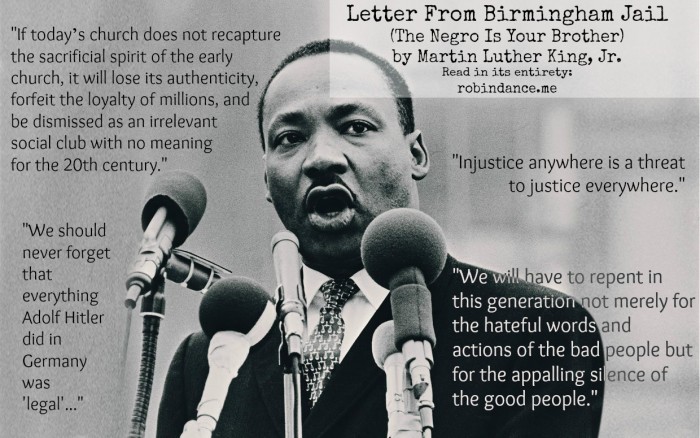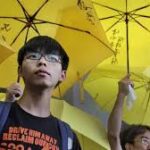If this BBC report is correct, it represents a welcome decision to think again about the proposed law change in Hong Kong -,which represents a real threat to its autonomy and “two systems one country.”
https://www.bbc.co.uk/news/world-asia-china-48645342
Following protests by more than one million people in Hong Kong I pressed the British Government on Tuesday, and again on Wednesday, during Question Time in the House of Lords, to stand by the people of Hong Kong and to uphold the international treaty signed by China and Britain guaranteeing “two systems in one country.” – and to condemn the violence which has been used against protesters. This is a time for China to honour its legal commitments to Hong Kong and to shelve the proposed extradition law.
Hong Kong Extradition Bill
11 June 2019
Lord Alton of Liverpool (CB)
My Lords, I declare an interest as a patron of Hong Kong Watch. Does the noble Baroness agree that, as an architect of the Basic Law, “one country, two systems”, the United Kingdom Government have a moral as well as legal responsibility to ensure that Hong Kong retains its autonomy, and a duty to articulate clearly that for 25 years Hong Kong has topped the Heritage Foundation’s annual index of economic freedom because of the rule of law and autonomy? Does she agree that by removing protection from arbitrary arrest, the new extradition law threatens businesses with staff in Hong Kong, as well as the rights of millions of people who are rightly fearful of this proposal, not least while fundamental freedoms in mainland China are being systematically eroded, as is perhaps best exemplified by last week’s decision by Germany to provide refugee status to two young democracy activists from Hong Kong? We have reached a sorry state of affairs when that becomes necessary.
Baroness Goldie
The noble Lord is absolutely correct. The United Kingdom takes that agreement very seriously and is committed to monitoring it and observing our obligations under that declaration. We do that, and have been doing that, in the most forceful way that we can. An important point has been raised about Hong Kong, and I suggest that we should draw comfort from two things. It is without question that the rule of law in Hong Kong remains robust. That is, of course, thanks largely to its world-class independent judiciary, which is a very important component of the Hong Kong justice system. Yes, there are concerns; yes, we are representing these concerns; and yes, we share the apprehension voiced by others, particularly within Hong Kong. We are doing everything we can to urge the Hong Kong Government to look at this more closely and ensure proper scrutiny of this legislation before it is enacted.
======================================
Hong Kong: New Extradition Law
12 June 2019
Question
3.28 pm
Asked by
Lord Alton of Liverpool
To ask Her Majesty’s Government what assessment they have made of the impact of the government of Hong Kong’s proposed new extradition law on (1) the autonomy of Hong Kong, and (2) its Basic Law guaranteeing the rights and freedoms of its citizens.
Lord Alton of Liverpool (CB)
My Lords, I beg leave to ask the Question standing in my name on the Order Paper and declare an interest as a patron of Hong Kong Watch.
Baroness Goldie (Con)
My Lords, the Hong Kong Government’s legislative proposals, if enacted as currently drafted, could impact negatively both on Hong Kong’s high degree of autonomy and on the rights and freedoms guaranteed by the joint declaration. This morning, the Foreign Secretary publicly urged the Hong Kong Government to listen to the concerns of their people and to pause and reflect on these controversial measures. The Hong Kong authorities should engage in meaningful dialogue and preserve Hong Kong’s rights and freedoms.
Lord Alton of Liverpool
My Lords, I thank the noble Baroness. She will be aware that, as we meet, tear gas and plastic bullets are being fired indiscriminately, with reports of injuries. In condemning this, will the noble Baroness reflect that in 2018, according to the Wall Street Journal, the courts in China’s Jiangsu province acquitted just 43 people, while convicting 96,271? Does she recall that a Hong Kong bookseller, imprisoned for eight months in China, was told by the authorities, “If we say you have committed a crime, you have committed a crime”?
Does she not agree, with the 30th anniversary of Tiananmen Square in mind, that when the law becomes a tool in the hands of an all-powerful communist state, everyone, from political dissidents, academics and lawyers to detained Uighurs, has legitimate cause for fear?
This is not least because people in Hong Kong will be left vulnerable to rendition in unjust trials, effectively giving legal status to previously illegal abductions.
Will she reflect on the statement of the International Chamber of Commerce in Hong Kong that there will be,
“an adverse impact on Hong Kong as a place to live and work, and”,
on its ambitions,
“to continue growing as a major international business centre”?
While a delay in enacting this law is welcome, can we reiterate that its abandonment would be even more welcome?
Baroness Goldie
I say to the noble Lord that the most important thing is that all of us are concerned at the degree to which protests are taking place as we meet in this Chamber. The Foreign Secretary this morning was absolutely clear when he issued a statement saying:
“The ongoing protests in Hong Kong are a clear sign of significant public concern about the proposed changes to extradition laws. I call on all sides to remain calm and peaceful. I urge the Hong Kong government to listen to the concerns of its people”.
As I said yesterday—I do not want to reprise in my response to the noble Lord things that we have already covered—it is legitimate to ask if this proposed legislative changes are breaches of the joint declaration. We do not believe that they are breaches in themselves, but of course there is a risk that future abuse of provisions in the legislation could be.
It is very important to recall, as I said in the Chamber yesterday, that Hong Kong has many strengths, two of the most important of which are the robust rule of law and an independent judiciary. On the one hand we have to recognise that it would not be reasonable for Hong Kong to become a sanctuary for suspected murderers, for example, who could flee there with impunity—that would seem undesirable under international law. At the same time, of course it is important that, whatever measures are being taken by the Hong Kong Government to address this issue, they must be explicitly fair and capable of being understood and they must contain protections for human rights. It is welcome that there has been a deferment in the process of legislation, but a longer period of consultation would enable a likelihood of consensus being found.
==========================================================================
Read this powerful letter from Joshua Wong, written from his prison cell… It has appeared in TIME.
<a href="https://time.com/5606016/hong-kong-extradition-authoritarianism/“>https://time.com/5606016/hong-kong-extradition-authoritarianism/
BY JOSHUA WONG JUNE 13, 2019
IDEAS
Joshua Wong is secretary-general of the pro-democracy party Demosistō and one of the leaders of Hong Kong’s Umbrella Movement.
In December 2014, during the final days of the Umbrella Movement, prominent signs proclaiming We’ll Be Back sprang up along Harcourt Road, one of the three major thruways occupied by peaceful pro–democracy protesters for nearly three months. The protest did not achieve its objective of genuine universal voting to elect our chief executive, but it awoke a generation of Hong Kongers to resist Beijing’s interference and showed the potential of civil disobedience.
That promise was fulfilled when more than 1 million took to the streets against an amendment that would allow Beijing to request extradition of any individual from Hong Kong. The chief executive would have the final say, but since he or she is handpicked by the Chinese government, we have every reason to be troubled. Yet the peaceful march on June 9 failed to change Mrs. Lam’s unwavering mind, forcing protesters to take the next step. I was deeply moved when I saw on television protesters resisting authorities to retake Harcourt Road. Five years ago, I had been temporarily detained at the police station when the exact same thing happened. I have missed the action again but in a different place: the Lai Chi Kok Reception Centre. As a student leader of the Umbrella Movement, I am serving my third sentence in prison.
Here, information about the outside world can be limited, but I take every opportunity to follow the news on television or in newspapers. The hygiene conditions are poor, and there is nothing else with which to clean my table other than toothpaste. On these rainiest summer days, the extreme heat is so unbearable that turning the fan on seems only to make things worse. I share a cell with five other inmates with almost no privacy, and only a squat toilet. The moment I most look forward to every day is when the two friends or family members come to visit; I see them through a glass barrier and speak through a telephone.
Police advance towards protesters during a rally against a controversial extradition law proposal outside the government headquarters in Hong Kong on June 12.
Police advance towards protesters during a rally against a controversial extradition law proposal outside the government headquarters in Hong Kong on June 12. Dale De La Rey—AFP/Getty Images
My lack of freedom today is a price I knew I would have to pay for the city I love. In the five years since the Umbrella Movement, but especially since 2017, when Mrs. Lam took office, our autonomy has further deteriorated: more opposition candidates deemed unacceptable by Beijing are barred from running for elected office; the pro-independence Hong Kong National Party is completely outlawed; a National Anthem Ordinance was proposed that would criminalize individuals who disrespect “March of the Volunteers.” China is dead set on making Hong Kong more like it. Not taking a stance will mean less freedom for all.
“Those who make peaceful revolution impossible,” President John F. Kennedy once said, “will make violent revolution inevitable.” While I continue to believe nonviolent resistance is the best way to safeguard our way of life, China and its puppet government in Hong Kong ought to be responsible for the escalation of the present crisis. And it is not an isolated case. Beijing’s imperial reach extends far and wide, from Taiwan and Xinjiang to the South China Sea and beyond. However this ends, our city will never be the same again.
As American security and business interests are also jeopardized by possible extradition arrangements with China, I believe the time is ripe for Washington to re-evaluate the U.S.–Hong Kong Policy Act of 1992, which governs relations between the two places. I also urge Congress to consider the Hong Kong Human Rights and Democracy Act. The rest of the international community should make similar efforts. A victory for Beijing is a victory for authoritarianism everywhere. Keeping an eye on this place sends an important message to Chinese authorities that democracy, not authoritarianism, is the way of the future. It also keeps our hopes alive knowing that we are not fighting alone.
This story appears in the June 24, 2019 issue of TIME.
Contact us at [email protected].
Joshua is not the first to have stirred consciences, writing from their prison cell…

Also see:


